Day dreamer, Νight thinker..
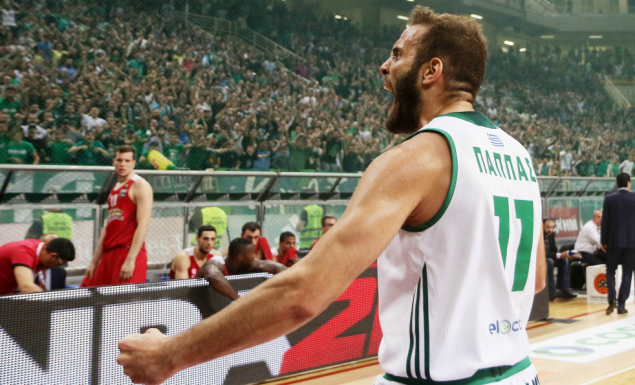
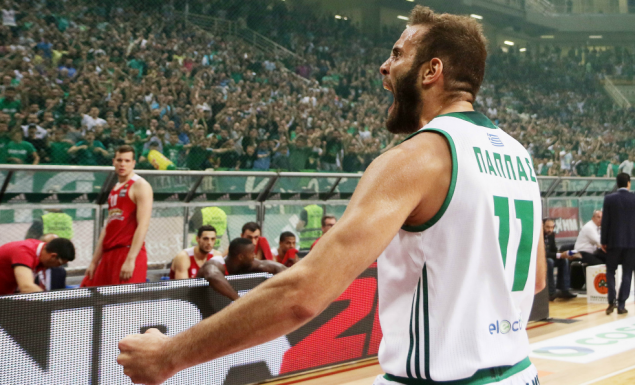
Day dreamer, Νight thinker..
By Jim Conway on 4 June 2017
Lacking concentration on defense, but having faith and great will, Panathinaikos managed to beat the mentally strong Olympiacos at OAKA and tie the series. Hoopfellas sees the carpet that has been rolled out for a great battle until the final winner is declared…

After a (second) close game Panathinaikos used his players’ one on one ability and their personality to tie the series to 1-1 against Olympiacos who got very close to a road win by playing composed and smart basketball without Vassilis Spanoulis. We ‘ll start our analysis from the Reds.
The principles that keep them alive against anyone, anywhere…
How deep Olympiacos has worked on their roster is showcased by how they respond against certain “thunders” (such as Spanoulis being suddenly sidelined) that may hit the team within the season. After so many years Olympiacos is the epitome of what our page called “human body”, in which when a sense is deactivated, the rest compensate for it by working overtime at 110% each, in order to cover this loss. Spanoulis is more than the eyes of the Reds offense. He is the brain and the information centre, the main data processor on the floor and the one who gives directions to the rest of the “body”…

The main (non negotiable) principles, on which the game of Giannis Sfairopoulos’ team has been structured never leave them alone out there, and guarantee a high level of competitiveness even in the most demanding environments. This is what happened on Thursday at OAKA; we had no doubt about the way things played out. The point of reference for the home team’s behaviour on offense was Giannis Bouroussis in the lineup of the Greens, his increased minutes, and how much Giannis Sfairopoulos’ offense invested on those minutes. Whether we are talking about the cases where Olympiacos would give the ball to the low post, or when they were trying to produce playmaking with their guards dribbling along the main lane, Olympiacos aimed at being one step ahead of the initial defensive rotation of their opponents and tried to look not at the weak side, but the pass on the top of the key to the main lane, where Printezis was waiting to receive the ball and act as his team’s playmaker (a la Stonerook), either by putting the ball on the floor, or by vertical passes to the heart of the key (while the defense was moving) or the weak side move of the ball, with the Reds seeking to execute from Bouroussis’ side. They worked well on this with Milutinov properly setting up screens, embellishing them with right passing principles (simple, clean-immediate cooperations with as less possible dribbling) on top of intense passiveness that was imbued on the current champions as their only solution in the absence of their main playmaker.
The ball in the hands of the main “low mistakers”…
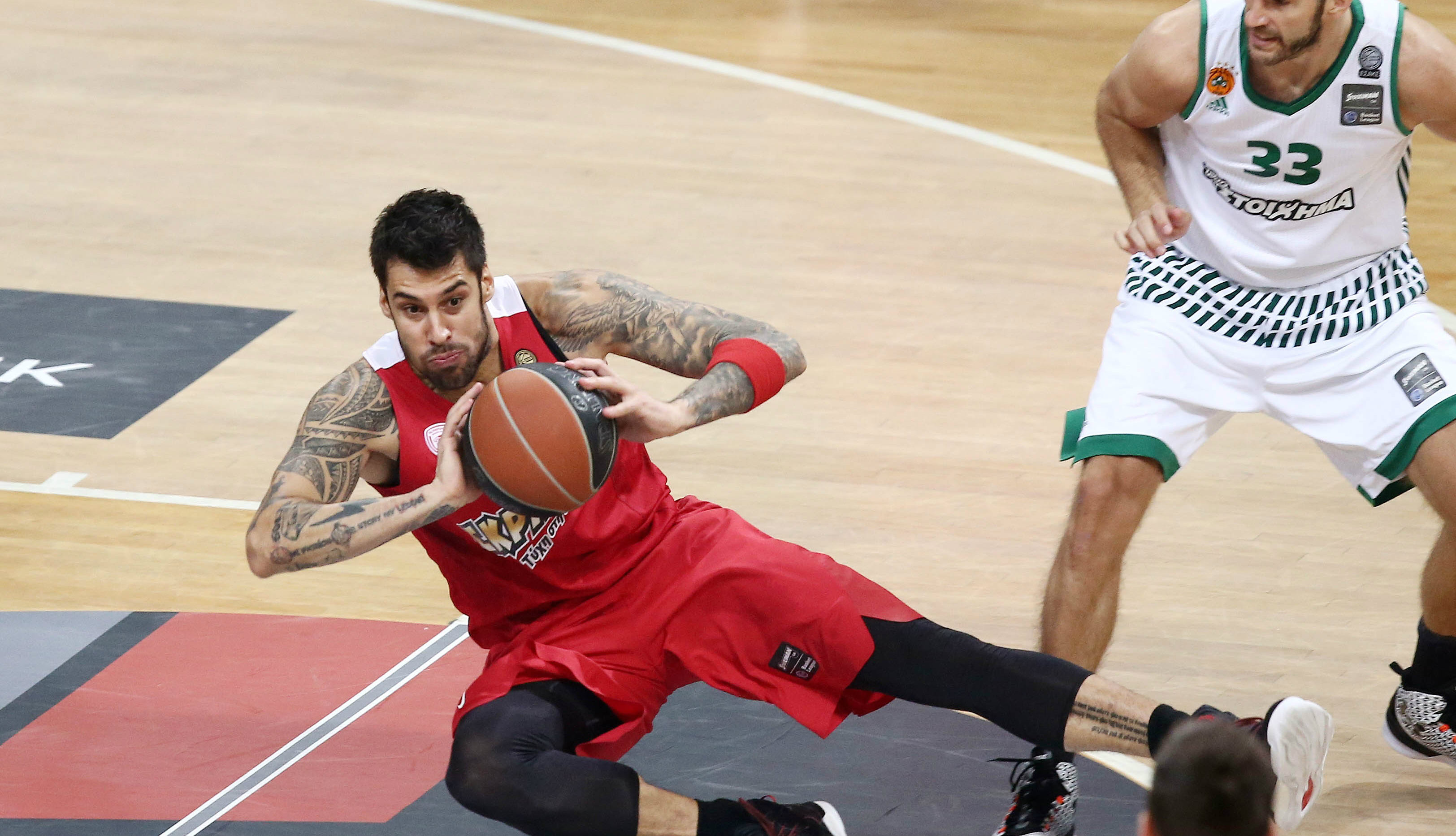
It made sense for coach Sfairopoulos to turn to Printezis-Mantzaris as the team’s sources of creation (in the sense of the involvement of either one of them in the final cooperation before the execution) on the basis of ball movement. With Spanoulis sidelined, they are the two safest pairs of hands, and with those two Olympiacos aimed at safely getting the ball in the paint. Printezis has countless miles on Olympiacos’ strong side and his cooperation with Spanoulis. He has been up against the most hardnosed and aggressive double teams in modern European basketball, which is the best raining in passing and finding his teammates under pressure at the right time. At the same time, he is a player that turns the ball over very few times… Matzaris’ low mistake game was the next point of reference and the “constant”, in order for Olympiacos to find scoring situations. The two of them had 11 assists and only four turnovers against a defense that put the pressure on them, especially in terms of physical contact; they werealso the only ones to break the 30-minute limit on the floor. The Reds gave Green the chance to run Pick & Rolls in the middle lane on Bouroussis (where their poor footwork of their opponent’s big man is more exposed, as he does not have the help of the side line), but the American guard’s weakness to go deep with the ball (by putting his opponent on his back and read the balance of the big man’s body in order to “hit”) and look at the weak side was distinctive. Green was later given the role of ball mover (Mantzaris would start from the baseline and go up high to get the ball) in the 1-2-2 or the 2-3 High Stack, used by Olympiacos more when Waters was at the “1” position, maybe looking at the possibility of using the American PG’s midrange.
Without Bouroussis on the floor Olympiacos directed their execution with Horns as the entry play to Printezis on the low post, especially at times when the Greek forward was up against Gabriel, who was unable to match him in the battle for position (constant push around), which is very important for how much a defense will be able to restrict Printezis’ game. The second constant (probably a surprise) in the low post was Kostas Papanikolaou, for whom (rightly so) Panathinaikos chose single defense, regardless of the height of the defender, as the Greek forward’s post game is not that developed. Papanikolaou hurt the home team (poor communication on their defense) and played down low, thus giving Olympiacos, and of course, Eric Green, a chance for a breather.
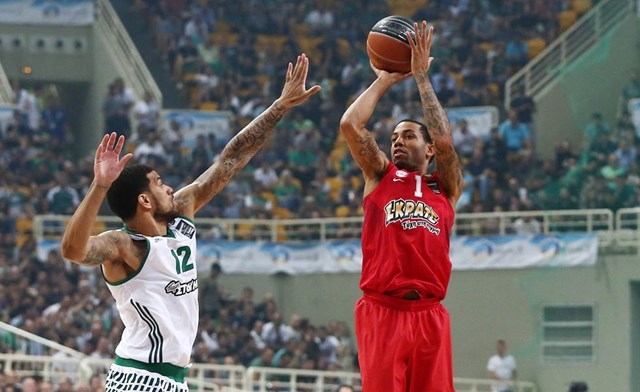
The American (21 PTS – 5/6 3PT) connected with the basket gradually and made a few big shots on defense, which gave his team a psychological boost and put the pressure on the Greens. However, in the final stretch of the game, despite the fact that Olympiacos managed to grab onto the back of their opponents, Sfairopoulos’ team was betrayed by of their main weapons: defending the centre of the key…
Throughout the game the Reds coach preferred the size of Milutinov-Young against Brouroussis (“Milu” defended very well on 3/4 in the post and made Bouroussis work hard to get the ball down low every time) and was partially right to do so (unfortunately for him) in the end, when, with the Serbian Center on the bench, the conditions led him to use Birch on the Panathinaikos big man. The Canadian wasn’t having a good night, though, and lost almost every battle in the final three minutes, when everything was hanging by a thread, and it was obvious that one on one game would decide the game. The Reds failure to protect their paint from the paratroopers-guards (Pappas-James) and Bouroussis tipped the scales towards the home side and left the away team with a big “why” on their lips…
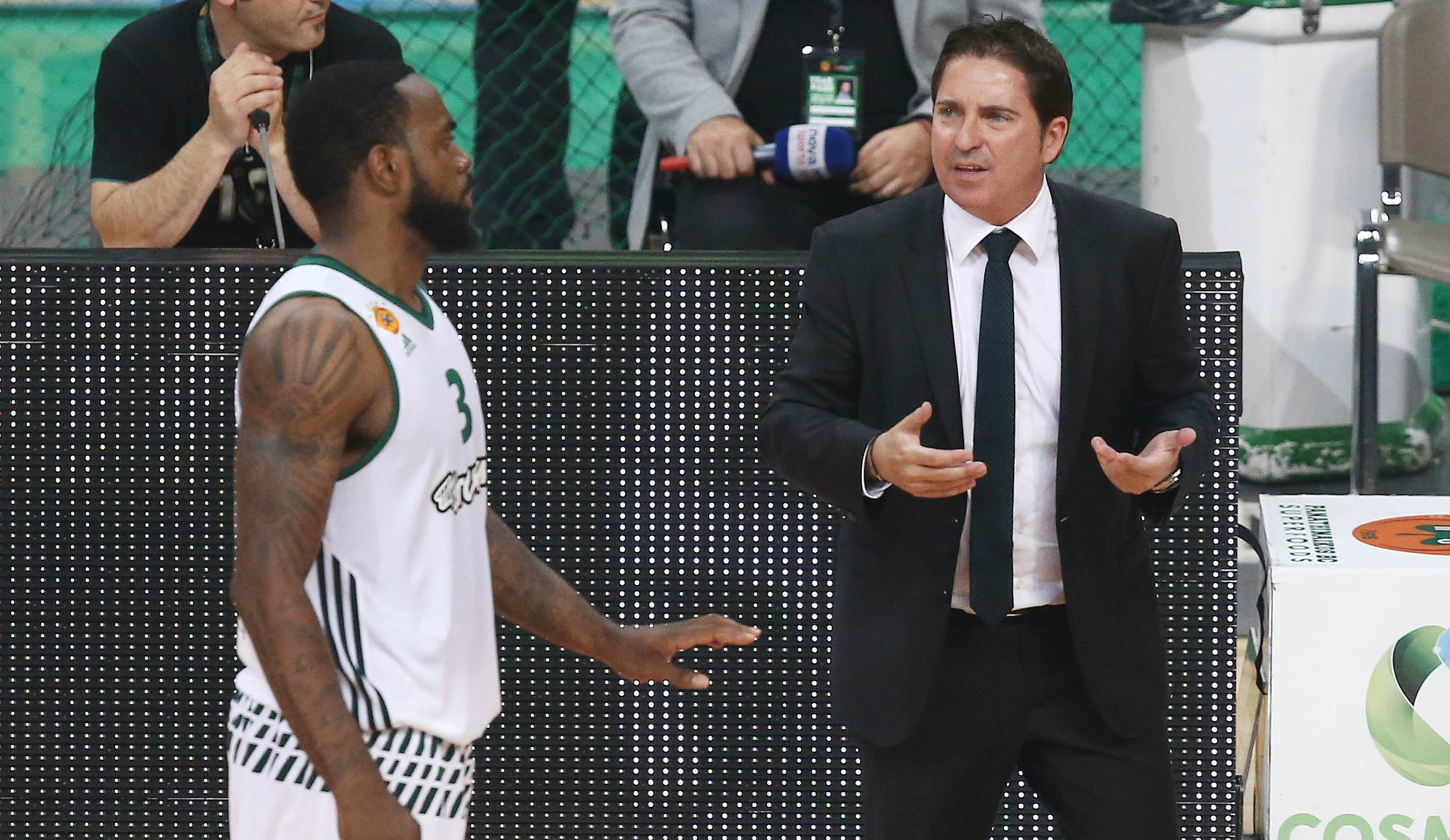
Xavi Pascual presented a Box offense similar to the one we had seen (executed to perfection then) in the years of Navaro-Lorbek in Barcelona. It included multiple screens for Feldeine (Staggered-Gaggle-Down) and the chance to shoot from 45o as well as the presence of a shooting-4 in the weak side put the right amount of pressure on their opponents’ defence. Panathinaikos worked well under this format and they could do even better, if they are able to execute more fundamental screens that will help their deployment and execution times.
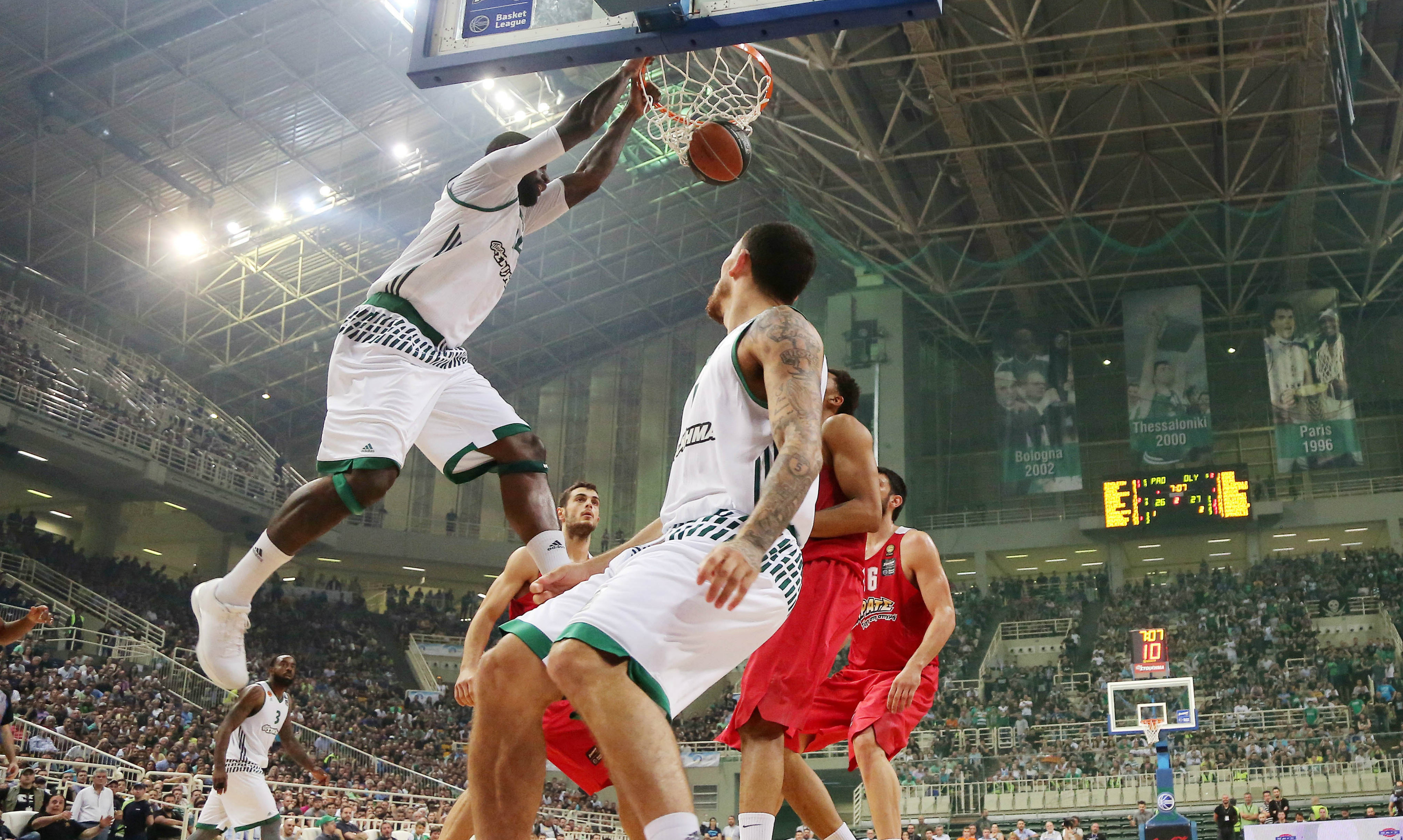
There was a prolonged persistence for executing middle Pick & Roll with Bouroussis with a different entry play each time. This is where the Greens offense relied on both 1-3-1 and 1-4 High Stack (there was an obvious effort to try to get the Olympiacos big men higher and increase the spaces in the key), where Green’s player was chosen as the playmaker. In total, I wouldn’t say that coach Pascual’s team was good in executing this situation in the middle lane on one hand because Olympiacos has a strong and very agile in terms of communication PnR defense, and on the other hand because Bouroussis is not a PnR big man. The fact that Olympiacos measured up Calathes very well (coach Sfairopoulos’ big men had good defensive behaviour in their back steps) played a major role, as this way they stripped him of the capacity to execute. When hesitation gets in the mind of Panathinaikos’ international PG, his offensive face changes completely… It was also interesting to see coach Pascual play his well known Diamond for Singleton in a role usually played by peripheral shooters (Rivers, Feldeine) throughout the season, trying to take their opponent’s defense by surprise with this kind of “adjustment”.
–
It’s a fact that Panathinaikos is trying to make his good scorers connect with the basket early on, but his offence finds it very difficult to find its flow, and it is then that they “grab on” to one on one game. In many cases their persistence to put the ball on the post (against a very able post defense) didn’t work, even though Bouroussis and his ability to dribble inside in post ups has worn down their opponents’ frontcourt. After his game 1 double-double (13 PTS-11 REB), the Center from Karditsa had 12 PTS-6 REB plus 7 fouls won in game 2. The way things are, coach Pascual has invested a lot in Bouroussis in the case “Greek League title”…
The mental approach on the defensive part

I think this is entire gist of the game for Panathinaikos. The Greens fell into the trap they had set for their opponents, who had good numbers without their main driving force. Panathinaikos did right in taking the floor looking to pressure their opponents but lacked the required concentration and discipline to control themselves. Coach Pascual’s men constantly left their positions looking to steal the ball first. This was a risky decision that gave Olympiacos chances to find easy lanes to the basket and situations with extra players. In essence, the Greens showed the way to their opponents.
When you start to play a press defense (the Greens started with 4/4 trapping press, Olympiacos responded by giving the ball to Printezis in the middle lane) you must first be prepared mentally. Aggressive enough to play with your opponent’s mind and disciplined enough to know when to stop so you don’t lose yours. Maybe this thirst for a clean victory against the “eternal” (without Spanoulis) that would change things around in the series was too much for the Greens… Singleton, for example, is a typical case in both his approach when defending in the post (he never managed to play 4/4/ in front of Printezis) and his behaviour in more spread out offences. In total, while the effort was more than satisfactory on the defensive end there was poor communication between the two lines (the cases where even the big men of Olympiacos dribbled their way to the basket) and some inexplicable decisions (Hard Hedge on Waters…), which I find difficult to believe that they were the coach’s choice. On the contrary, when their opponents closed the gap in the end, the home team executed with great precision and much confidence offensive one on one plays. Gabriel was decisive (cold-blooded shots), James was the key (I think that there are very few basketball players with such confidence in themselves in Europe today) and Pappas was physical…
“Pappas, our guy…”
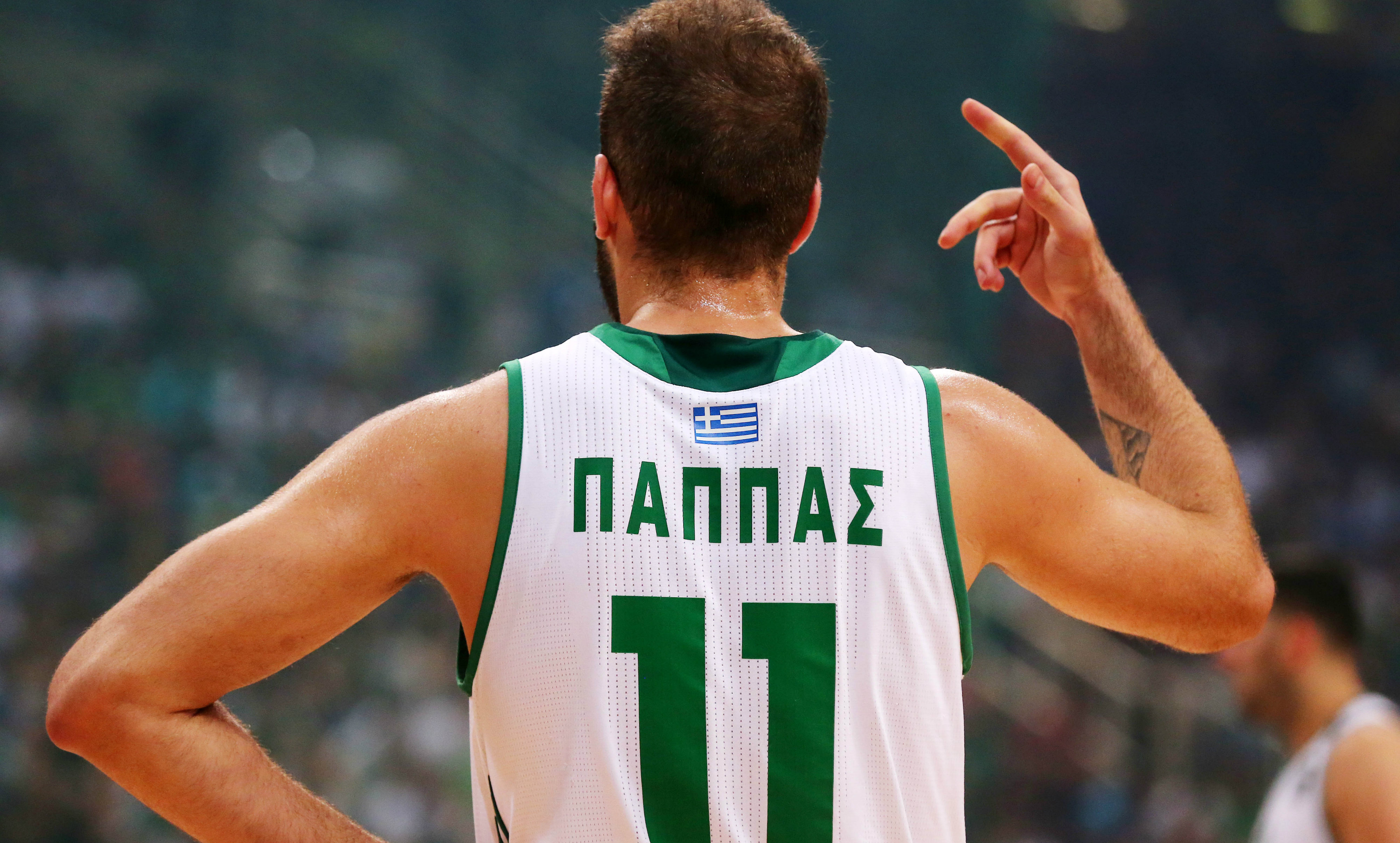
Nikos Pappas was the one that tipped the scales in favour of the home team in the final stretch of the game. Since his first year with coach Pedoulakis, we had pointed out the significant role he can play in such important home games with his ability to create paths to the basket when they are not even visible. His style of game and his mentality make the fans go wild and his ability in free throws is an important asset in Panathinaikos’ closing, especially against such well-prepared defences. Pappas’ resilience makes the difference in the paint and his improvement on defence (he defended well against Green in the final, critical possessions) creates a condition of trust between the player and the total performance of his team in close matches. It’s a fact that he should find ways to get in the game and be necessary for the common good. If he will lead or not is to be decided by the team, after seeing the ties (which are still in their beginnings) of its game in relation to the 27-year-old guard’s presence on the floor.
Pappas clearly saw the difference between him and today’s elite Euroleague players, in the series with Fener, against Bogdanovic. The key for him to reach this status is consistency. Pappas has intangibles and he is passionate in this kind of matches, however he gives out the impression that he is too cool for the chance he is given in his professional career. Great players are born through repetition and consistency. What seems to separate Pappas from this level (no one knows if he will ever be able to approach it) is that he is not that “crazy” about what he does. Dear Nikos, if this does not become an obsession for you, the top will always look far away and unreachable.
Game 3, the new game 5…?
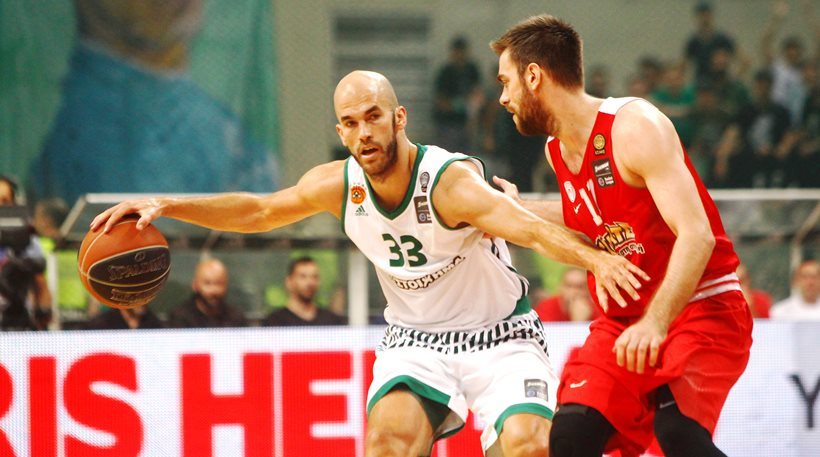
In the Greek League everything is still open, and 80 minutes into the clash of the two “eternals”, it is easily understood how important today’s game 3 is for the final outcome of the series. The team that will be in the driver’s seat on Sunday night will have a significant advantage for the title battle.
It’s clear that we are at a marginal point. Spanoulis will be ready, the champions are back on their home court, but Giannis Sfairopoulos should prepare them so they don’t fall in the trap of the “better team”. Olympiacos is mentally stronger, but this will be put to the test by a team that has shown that it can win at Faliro. Is it time for Xavi Pascual (and for one of the tricks/adjustments he is used to have up his sleeve in such marginal situations) and for Panathinaikos…? The Greens will need to make their outside shots (let’s see if Papapetrou will again play good defence against the player with the strongest character, K.C. Rivers) and mainly have good defensive concentration, in order to make their opponents turn the ball over as much as possible. If they manage to get in Spanoulis’ head (AST/TO ratio), they will be able to take the castle; at the same time the Reds will start the match very strong , but they will be holding the hot potato of patience in their hands. It’s only a match, which (especially in the country we live in) will decide many things. Maybe even contracts… Between you and me, we live for this kind of matches.
P.S.: This is where, after seeing so much of “Llull” repetitions, you throw away the remote, turn off the TV and decide that the next time you ‘ll watch a Real Madrid match will be next October…

P.S.1: This is how Anadolu stayed alive in game 3 of the Turkish semifinals against Besiktas of the TLB “magician”, Ufuk Sarica.
P.S.2: Same as what we said about EA7 on September..
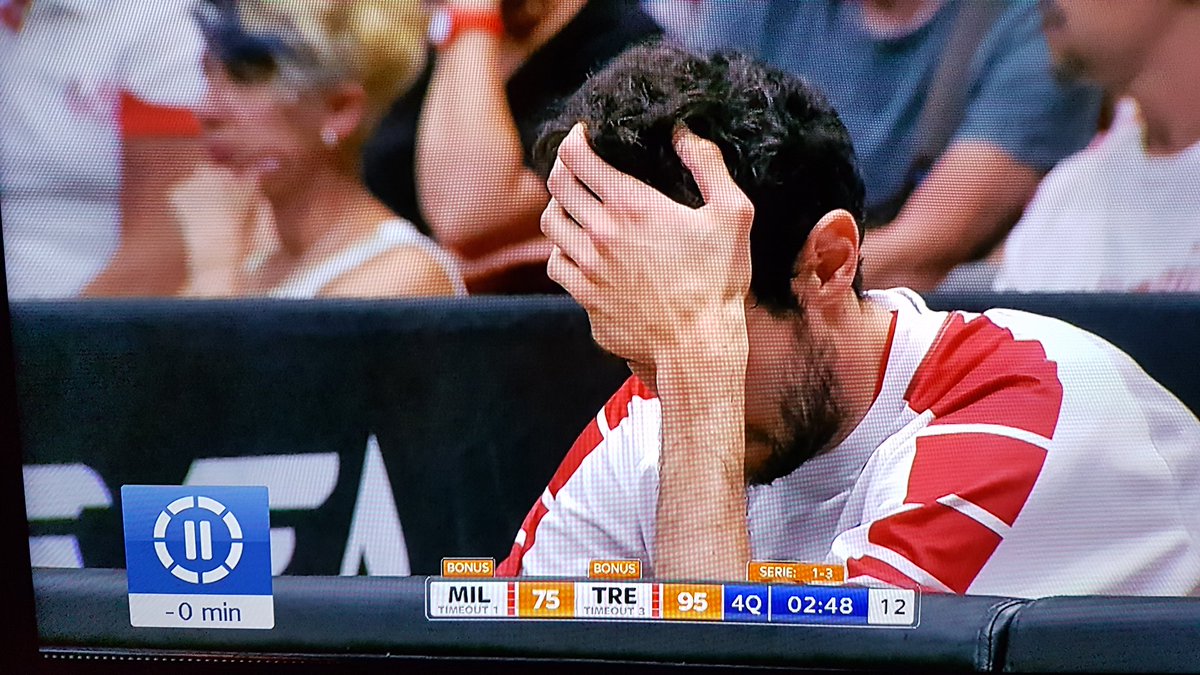
P.S.3: A “thundering” 1-0 by Golden State, who played total basketball in the third period and walked all over Cleveland, who looked to be crouching in the corner, their heads down and waiting for the bombardment to end. Lebron’s body language in game 1 was screaming for what was to come. For the first time the Cavs superstar approached so realistically the role of the “underdog” in a battle. He reminded me of a ship waiting for a storm, going up and down the waves but still away from the centre of the storm. The transition defence of his team looked like a scattered demonstration (Durant and Curry were merciless) and the hesitation in passing the Warriors defense (hats off coach Adams) put on Cleveland’s offense disabled their communication and kept their beyond the arc productivity low. The Warriors had 31/4 AST/TO versus 15/20 and 12-0 steals, and the way the team from Oakland got to the heart of the Cavs key show exactly what happened in game 1.
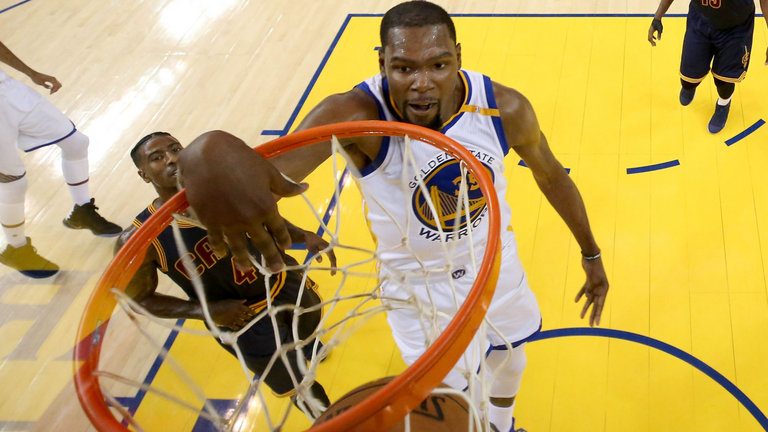
The Warriors are a better team. They were the better team last year as well… I have no doubt about that. However the Cavs are the champions. They can hit back. The real battle will begin when James and Co. manage to give the first blow that will shake the Warriors’ confidence. Durant has a unique chance to kill the “beast” and become the next “Saint George” of the league. Wait a minute, though… Could it be that the modern “beast” is the super team from Oakland…?
Translated by: George-Orestis Zoumpos
Jim Katsionis


